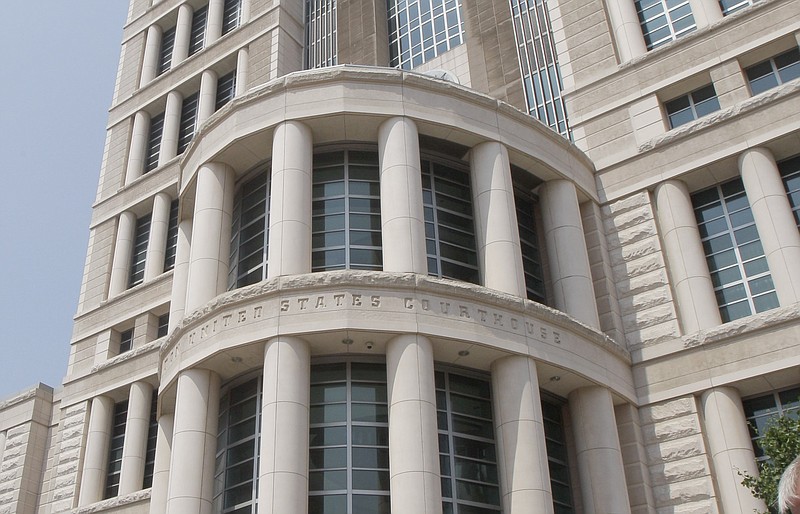The 8th U.S. Circuit Court of Appeals on Thursday ordered a rehearing in the high-profile fight over the state's anti-boycott law, granting a petition from Attorney General Leslie Rutledge and vacating an earlier court ruling that found the law in violation of the First Amendment right to free speech.
The legal dispute is over a 2017 Arkansas law, Act 710, that added a pledge to not boycott Israel as a part of vendor contracts with the state of $1,000 or more.
In 2018, news publication Arkansas Times and attorneys with the American Civil Liberties Union sued to block the law. The ACLU has challenged similar laws in other states.
Rutledge, in her petition, asked for a full panel of federal appellate judges to reconsider the case after a three-judge panel reversed a federal district judge's dismissal of the Times' lawsuit.
"I am pleased the full Eighth Circuit will hear this important case defending Arkansas's law that prohibits discrimination against Israel. I will wholeheartedly defend Arkansas's law against the Arkansas Times's frivolous lawsuit," Rutledge said in a statement Thursday.
No date has been set for the new hearing.
Rutledge and other attorneys for the state have argued in court documents that a boycott of Israel "is not inherently expressive" and that the law "does not prohibit anyone from criticizing Israel, condemning Act 710, or even advocating boycotting."
Similar laws have been enacted in more than two dozen states. The measures have come about in contrast to the Boycott, Divestment, and Sanctions movement, which advocates for economic measures against Israel because of actions described by supporters as human-rights violations against Palestinians.
In April, 16 states signed onto a legal brief backing Rutledge's push for a rehearing and stating that the February ruling from the three-judge panel "unjustifiably threatens the laws of many other states." All were represented by Republican attorneys general. Rutledge is also a Republican.
Brian Hauss, a senior staff attorney with the ACLU Foundation, in a statement said political boycotts "have been a proud part of this country's constitutional tradition for centuries, from the Boston Tea Party to the Montgomery Bus Boycott."
Hauss cited legal challenges to similar laws in Kansas, Arizona, Texas and Georgia, adding that "we look forward to pressing our challenge to Arkansas' unconstitutional anti-boycott statute."
The Arkansas Times on its website has said that it has never boycotted Israel nor advocated editorially for a boycott.
In court documents, the Arkansas Times has stated that it "wishes to remain absent from the debate over boycotts of Israel," and the state law "is an unconstitutional attempt to conscript the Arkansas Times into that debate."
The lawsuit was filed against the 10 members who make up the University of Arkansas board of trustees. Court documents state the University of Arkansas-Pulaski Technical College asked the Times to sign a certification to not engage in a boycott of Israel as a condition of an advertising contract.
The lawsuit claimed lost advertising revenue. The state law does not require a pledge from a contractor that "offers to provide the goods or services for at least twenty percent (20%) less than the lowest certifying business," the law states.

